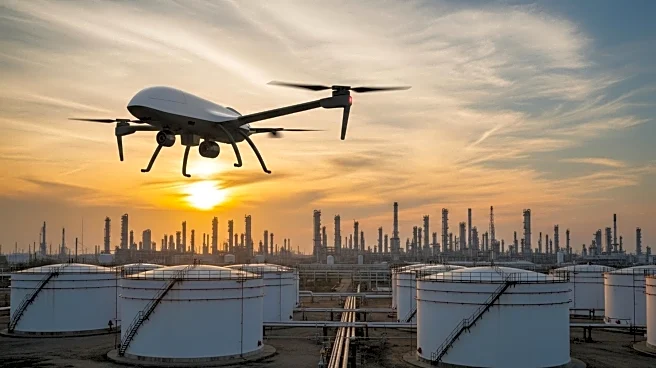What's Happening?
Ukrainian drones have reportedly struck multiple Russian oil facilities, including the Rosneft refinery in Ryazan and an oil depot in occupied Luhansk Oblast. The attacks occurred overnight on September 5, causing significant disruptions. The Ryazan refinery, one of Russia's largest, experienced explosions and a subsequent fire, impacting its primary oil processing unit. This facility had previously been targeted in August, leading to operational halts. The strikes are part of Ukraine's intensified efforts to undermine Russia's energy infrastructure, which supports its military operations. Additionally, Ukrainian forces targeted Russian air defense systems in Kaluga Oblast, further escalating the conflict.
Why It's Important?
These drone strikes highlight Ukraine's strategic focus on crippling Russia's energy sector, a vital component of its economy and military funding. By targeting refineries and depots, Ukraine aims to reduce Russia's capacity to sustain its war efforts. The attacks could lead to fuel shortages and increased economic pressure on Russia, potentially affecting its military operations. The strikes also demonstrate Ukraine's growing capability in long-range drone warfare, which could shift the dynamics of the conflict. The broader implications include potential disruptions in global oil markets and increased geopolitical tensions.
What's Next?
The ongoing conflict and Ukraine's targeted strikes may prompt Russia to enhance its air defense systems and reconsider its energy security strategies. International stakeholders, including oil-importing countries, may face volatility in oil prices and supply disruptions. The situation could lead to further diplomatic efforts to resolve the conflict, as well as increased military engagements. Monitoring the developments in Ukraine's drone capabilities and Russia's response will be crucial in understanding the future trajectory of the conflict.











